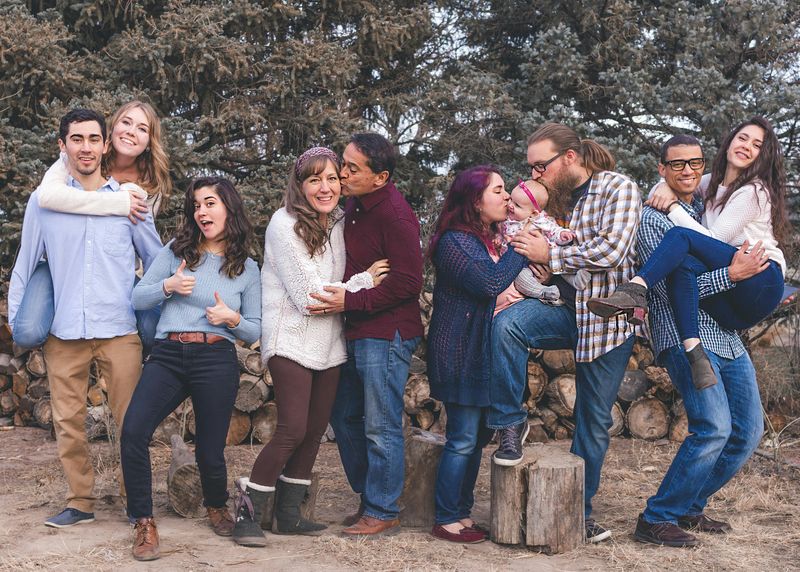25 Reasons Why Boomers Are Navigating Family Estrangement More Than Ever
Family estrangement among Boomers doesn’t always arrive with a bang—it often slips in quietly, almost unnoticeably. One day you’re sharing Sunday dinners, and the next, months have passed without a word.
It’s rarely one big argument; more often, it’s years of small misunderstandings, emotional distance, or unspoken hurt. For many, it feels like waking up in a life where the people who once felt closest now feel like strangers.
These aren’t just fractured relationships—they’re stories filled with complexity, grief, and sometimes even relief. As priorities shift and personal boundaries take center stage, old family dynamics don’t always survive the transition. It’s a hard truth, but a growing one that deserves attention.
1. The Quiet Rise of Family Estrangement

Family estrangement among Boomers is quietly becoming more common. It’s not always the result of explosive conflicts; sometimes, relationships just fade away without any big drama.
You might not even notice it’s happening until one day, you look around and realize those once-familiar family gatherings have become a thing of the past. This blog explores the nuanced and varied reasons behind this growing trend, offering a reflective and empathetic look at the dynamics at play.
2. A Generation Caught Between Tradition and Change

Boomers grew up with clear expectations about family roles and responsibilities, often rooted in tradition. Fast forward to today, and the world looks quite different. Many Boomers find themselves torn between the values they were raised with and the new family dynamics that defy those old norms.
It’s a world where the familiar expectations clash with emerging realities. Navigating this landscape feels like balancing on a tightrope, trying to honor the past while understanding a rapidly changing present.
3. When Silence Replaces Sunday Dinners

Imagine the warmth of Sunday dinners that slowly vanish—not because of a heated argument, but due to a gradual fading away. The laughter echoes into silence, leaving nothing but empty seats and unasked questions.
It’s not that something catastrophic happened; rather, life’s busyness crept in, and those cherished gatherings quietly slipped away. Estrangement sometimes unfolds like a whisper, rather than a shout, reminding us that connections can dissolve without dramatic moments.
4. Shifting Family Values Across Generations

Gen X and Millennials often view family roles through a lens quite different from Boomers. While Boomers may prioritize duty and tradition, younger generations sometimes redefine these roles in pursuit of personal happiness and balance.
This difference isn’t about blame; it’s about evolution. Imagine a family discussion where the older and younger generations share their views, not always seeing eye to eye but trying to understand. It’s this gap in perception that sometimes leads to distance.
5. The Impact of Divorce and Blended Families

Divorce and remarriage have added layers to family relationships, creating complex networks. For Boomers, this often means connecting with stepchildren and new (dysfunctional) family dynamics. Emotional connections might not always form naturally, leading to a sense of distance.
As time goes on, this emotional gap can widen, turning into estrangement. It’s a silent evolution, where relationships that never fully developed become more distant over the years. These blended families can present unique challenges that quietly affect family unity.
6. Mental Health Awareness and Emotional Boundaries

With today’s focus on mental health, younger generations prioritize setting emotional boundaries. For Boomers, this can feel unexpected, as therapy culture has reshaped relationship dynamics. It’s not about rejection; it’s about self-care, but that doesn’t make it any less challenging.
Imagine a conversation where a younger family member expresses the need for space, leaving a Boomer feeling puzzled. These boundaries, although healthy, can sometimes be misconstrued as a desire for distance, leading to misunderstandings.
7. Estrangement vs. Healthy Distance: Knowing the Difference

Not all distance is unhealthy. Knowing the difference between needing space and estrangement is key. Consider less frequent calls as simply a natural ebb and flow, not a sign of broken bonds. But complete silence? That’s another story. It requires attention, as it might indicate deeper issues.
This is about understanding these subtle differences to maintain connections before they become too distant. A little space can be healthy, but it’s crucial to recognize when it crosses into something more concerning.
8. The Role of Adult Children in Cutting Ties

Adult children often initiate estrangement, a fact that can leave Boomers feeling bewildered. This isn’t about blame but understanding the shift. The reasons may not always be clear, leaving parents with questions.
Imagine the confusion of a Boomer parent trying to piece together what went wrong, only to find silence instead of answers. They might wonder if there’s something they missed or if this is just a phase. Perhaps you think your family doesn’t care about you, and vice versa. It’s a complex dynamic, where clarity is often elusive.
9. The Influence of Therapy and Self-Help Culture

Therapy and self-help have transformed the way people talk about family. For Boomers, keeping up with terms like “toxic” can be challenging. This new language changes perceptions and expectations. Think of a Boomer hearing their relationship labeled in a way that feels foreign.
It can shift family dynamics, creating gaps. While this isn’t inherently negative, it requires adaptation. This cultural shift asks Boomers to rethink their views, a task that can feel daunting but not insurmountable.
10. Technology, Texts, and the Breakdown of Communication

Modern communication tools have revolutionized interaction but also created new challenges. Texts and social media, while convenient, can foster misunderstandings. A “seen but not replied” message might unintentionally breed hurt feelings.
For Boomers, interpreting these digital cues isn’t always straightforward. The absence of tone and context in texts can widen gaps. It’s a new landscape of communication, where technology connects yet sometimes divides. This shift requires a fresh understanding of what connection truly means in a digital world.
11. Political and Social Divides at the Dinner Table

Political and social issues can drive wedges between Boomers and their kids. These aren’t just intellectual disagreements; they become deeply personal, affecting family bonds and can be a reason big enough to distance yourself from your family. Picture a dinner table where conversations turn tense, not necessarily from anger but from profound differences.
These divides can erode relationships, creating emotional distance that feels insurmountable. It’s about more than opinions; it’s about identity and values, making reconciliation complex. Yet, understanding remains possible when approached with empathy and open-mindedness.
12. The “Tough Love” Approach: When It Backfires

Tough love, a common parenting style among Boomers, sometimes leads to unintended consequences. While meant to instill discipline, it can foster resentment. Imagine a Boomer looking back on their parenting choices, realizing the gap it created.
The intention was love, but the result can be estrangement. It’s a moment of reflection, understanding that what was once considered helpful might have done more harm than good. This realization calls for compassion and understanding from both sides.
13. Grandparent Alienation: The Hidden Pain

Being cut off from grandchildren is a profound pain for Boomers. It’s not just about missing birthdays or milestones; it’s a deeper loss. Imagine a grandparent holding a child’s drawing, a small reminder of the connection they crave.
This isn’t about sentimentality but real, tangible grief. It’s about the everyday moments, like a phone call or a hug, that are absent. For many, this alienation is a silent heartbreak that lingers, sometimes without resolution.
14. Boomer Parents and Unresolved Childhood Trauma

Unresolved childhood trauma can seep into parenting, affecting relationships with adult children and resulting in deeply dysfunctional families. For Boomers, these old wounds might surface decades later. Imagine a Boomer realizing the echoes of their past in their present family dynamics.
It’s not therapy-speak but a genuine moment of self-awareness. They might see patterns they unknowingly passed on, leading to estrangement. This reflection calls for honesty and healing, a path not easily walked but necessary for understanding and reconnecting.
15. When Financial Entanglements Lead to Resentment

Money can quietly erode family ties. Think of co-signed loans or inheritance disputes, slowly building tension over time. For Boomers, these financial entanglements might seem minor initially but grow into significant rifts.
Imagine the awkwardness of a family meeting where financial expectations aren’t met, leading to resentment. It’s not just about the money; it’s about trust and unmet promises. This financial strain can become a silent catalyst for estrangement, often unexpectedly.
16. Aging Alone: The Long-Term Effects of Estrangement

Aging without close family ties is a reality for some Boomers. It’s about more than loneliness; it’s about the impact on daily life and future planning. Imagine the quiet of a day without family visits, or the uncertainty of who to call in times of need.
This solitude requires resilience, redefining what support looks like. It’s a journey of adapting to life without the family ties once taken for granted, crafting a new sense of community.
17. Sibling Rivalry That Never Went Away

Childhood conflicts between siblings can persist into adulthood. For Boomers, this rivalry sometimes leads to estrangement, not just from children but from siblings too. Picture grown siblings, still carrying echoes of past disagreements, finding it hard to bridge the gap.
It’s a story of unresolved issues that linger, turning into silence. This isn’t just family drama; it’s a poignant reminder of how old patterns can persist, challenging the bonds that were once unbreakable.
18. Inheritance Drama and the Final Straw

Fights over wills or property can be the breaking point for already strained relationships, especially in toxic families. It’s not always dramatic, but a quiet unraveling. Imagine a disagreement over inheritance that starts small but grows, becoming the final straw.
For Boomers, this drama isn’t just about assets; it’s about perceived fairness and respect. When expectations aren’t met, it can fracture family bonds, leaving silence in its wake. This drama, while common, is deeply personal and often painful.
19. Reconciliation: Why It’s Rare, But Not Impossible

Mending estranged relationships is challenging but not without hope. Consider the courage it takes to reach out, the vulnerability in expressing a desire to reconnect. For Boomers, it’s a journey without guarantees but filled with possibility.
Imagine the tentative steps towards understanding, a process that’s both daunting and heartening. While reconciliation may be rare, it’s not beyond reach. It requires patience, empathy, and an open heart, allowing for the chance of rebuilding connections that once seemed lost.
20. The Stigma Around Talking About Estrangement

Admitting to family estrangement carries a stigma. Many Boomers feel isolated, as if they’re alone in this experience. Picture a support group where sharing such stories feels both daunting and liberating. There’s shame and confusion, a silence around it that keeps people from reaching out.
Yet, as more share their experiences, it becomes clear this issue is more common than acknowledged. Breaking this silence can be the first step towards healing, offering understanding and connection.
21. What Boomers Secretly Wish Their Kids Knew

There’s an unspoken wish among many Boomers for their kids to understand their perspective. It’s not about blame, but about sharing feelings that words often fail to express. Picture a Boomer sitting down to write a letter, hoping to bridge the gap.
They want their kids to know the love remains, even if words are hard to find. This silent hope is about connection, reaching out across the divide with vulnerability and genuine emotion.
22. Can You Have Closure Without Contact?

Closure doesn’t always come with a final conversation. For Boomers, living with estrangement means accepting the absence of tidy endings. Imagine a serene moment, watching a sunset, reflecting on relationships that remain unresolved.
It’s a lesson in acceptance, where peace is found not through contact but through understanding within oneself. This journey is about finding contentment in the reality of distance, learning to carry on with grace and dignity despite unanswered questions.
23. Moving Forward Without Bitterness

Living a full life without reconciliation is about resilience. It’s not about pretending everything’s fine but finding peace within. Imagine a Boomer going for a walk, carrying life’s experiences with them without bitterness.
It’s about letting go of expectations, embracing what’s within reach. This path is one of dignity, acknowledging loss but choosing not to be defined by it. It’s a quiet strength, a choice to focus on what brings joy, even amidst estrangement.
24. Resources and Support for Estranged Families

Support is available for Boomers navigating estrangement. From support groups to books, there’s a wealth of resources offering connection and understanding. Imagine a community center filled with Boomers sharing stories, finding solace in shared experiences.
These resources don’t promise solutions but offer a space for healing and insight. It’s about building a network of empathy, where Boomers feel less alone. This support can be a lifeline, fostering resilience and a sense of belonging amidst the challenges of estrangement.
25. Redefining Family in Later Life

As Boomers age, redefining family becomes a journey of embracing new connections. Family isn’t just blood; it’s about friendships, community, and chosen connections. Picture a group of older friends at a picnic, sharing laughter and stories.
This redefinition is about finding warmth and belonging in unexpected places. It’s a soft, sincere reminder that family is what we make of it, a tapestry woven from love and understanding, regardless of traditional ties. This new definition offers comfort and fulfillment.







